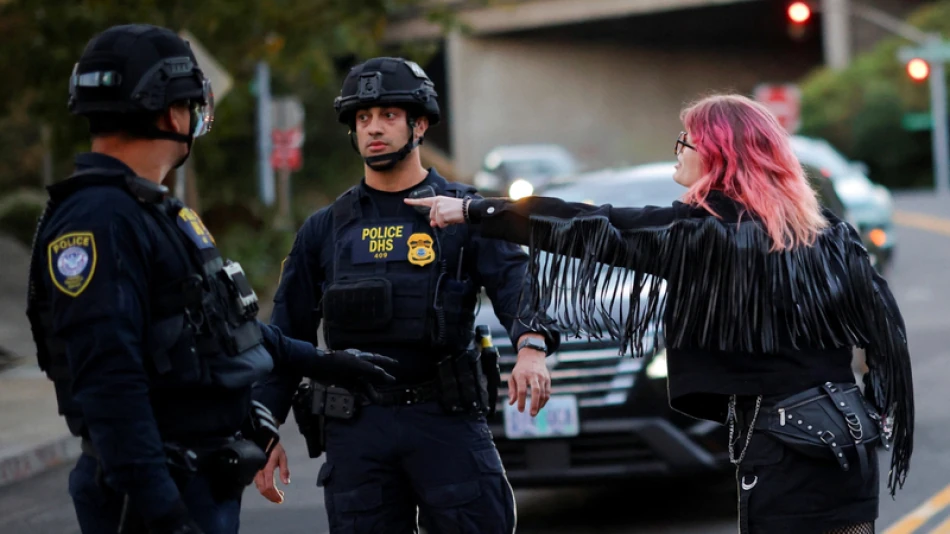
Trump Threatens to Invoke Insurrection Act, Deploy Federal Troops to U.S. Cities
President Donald Trump threatened to invoke the Insurrection Act, which would allow him to deploy federal troops to suppress violent rebellion, as his administration faces legal challenges from Democratic-led states over National Guard deployments. This escalation comes after Illinois and Oregon took court action to block his orders to send troops to their cities.
Trump told reporters at the White House that "the Insurrection Act exists for a good reason. If I have to use it, I will." He added that if people are being killed and courts or local officials are blocking his efforts, he won't hesitate to act.
The Insurrection Act dates back to the 18th and 19th centuries. It allows presidents to declare emergencies and use armed forces against American citizens - something that's normally prohibited. It's a rarely used law that gives the president sweeping powers during domestic unrest.
Illinois Governor J.B. Pritzker pushed back hard during a press conference. He said Trump is looking for an excuse to "use the Insurrection Act to send the military into our city." Pritzker insisted there's no rebellion in Chicago that would justify such drastic action.
Last Saturday, Trump signed an order sending 300 National Guard members to Chicago to "protect federal personnel and property." Democratic opposition criticized the move immediately. Illinois then filed a court petition to stop the White House from deploying troops, calling Trump's characterization of Chicago as a "war zone" unfair.
A federal judge will hear the case Thursday. Chicago becomes the fifth Democratic-led city where Trump has ordered National Guard deployment - a measure typically reserved for extraordinary circumstances.
The administration has already sent National Guard troops to Los Angeles, Washington, Memphis, and Portland despite local officials' objections. Trump claimed these deployments helped "clean up" the federal capital.
In Portland, a federal judge temporarily blocked the National Guard deployment. The city has seen months of protests against immigration enforcement operations. Trump has made fighting illegal immigration central to his presidency, repeatedly denouncing what he calls an "invasion" of the United States by "foreign criminals."
National Guard members are army reservists who usually respond to natural disasters, though they can also be sent to fight overseas. Their domestic deployment for law enforcement purposes represents a significant escalation of federal intervention in local affairs.
The legal battles highlight the tension between federal authority and state rights. Democratic governors argue Trump is overstepping his bounds and militarizing domestic law enforcement. The president counters that he's protecting federal interests and maintaining order.
Most Viewed News

 Sara Khaled
Sara Khaled






